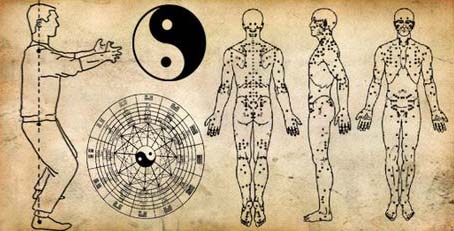Can Qigong improve the quality of life of cancer patients?
A recent study examined whether Qigong can improve the quality of life of cancer patients. The results are encouraging.
More and more people survive after malignant cancer. But treatments and disease often leave their mark and can also permanently restrict the quality of life of affected. Qigong can be used both, during the therapy, as well as, its aftermath are provide a better quality of life. In any case about this is report many cancer patients who have had experiences with Qigong. A study has systematically investigated the effects of Qigong on the quality of life on cancer patients.
This is QiGong – “Qi” meaning energy and “Gong” meaning cultivation. Therefore QiGong could be translated as “energy cultivation”. Qigong combines movement, breathing, concentration and meditation exercises. The awareness during the exercises should also lead to a greater awareness in everyday life. Numerous studies have confirmed the positive effects of Qigong on respiratory, nervous, digestive, circulatory and secretion system.
The study include 66 patients from 40 over 80 years old. 74 percent of patients are had breast cancer, the rest – other various type of cancers. Three-quarters of participants is in a cancer treatment program currently, the other in the aftercare program. All patients took a part in more than ten weeks program of Qigong with weekly lessons by 90 minutes. All participants, also practise Qigong five days per week by 30 minutes independently. In the first, fifth and tenth hour of program, participants completed questionnaires to record their life quality.
Quality of life is improved on 60 percent.
It was found that quality of life was significantly improved almost in all surveyed patients over time. The strongest effect was seen in the emotional function. With 99.7 percent of their value has almost doubled in period of ten weeks. Perhaps here also contributed to the integration in a group, which is an important social aspect especially for people living alone or elderly participants. However, the Qigong is generally attributed to a strengthening and stabilization of the mental functions, which could confirm the study. The cognitive function showed 51.2 percent to an astonishing increase. More significant improvements had been made to the symptoms nausea and vomiting, loss of appetite, insomnia and other various disorders.
Overall, the quality of life of patients increased by more than by 60 percent. The positive effects show up, both at the follow-up patients as well as those who currently still in therapy. Also, there were no differences between the patients who were diagnosed a few months ago, and those for already passed several years. Thus Qigong showed positive effects at every stage of cancer.
The exercises are flexible and can be adapted to the current health condition of the patient. The training gives the independent practice no cost, since you neither specific devices still requires special clothing. Moreover, Qigong may at any time and carried out at any place and is therefore easily integrated into the modern life.